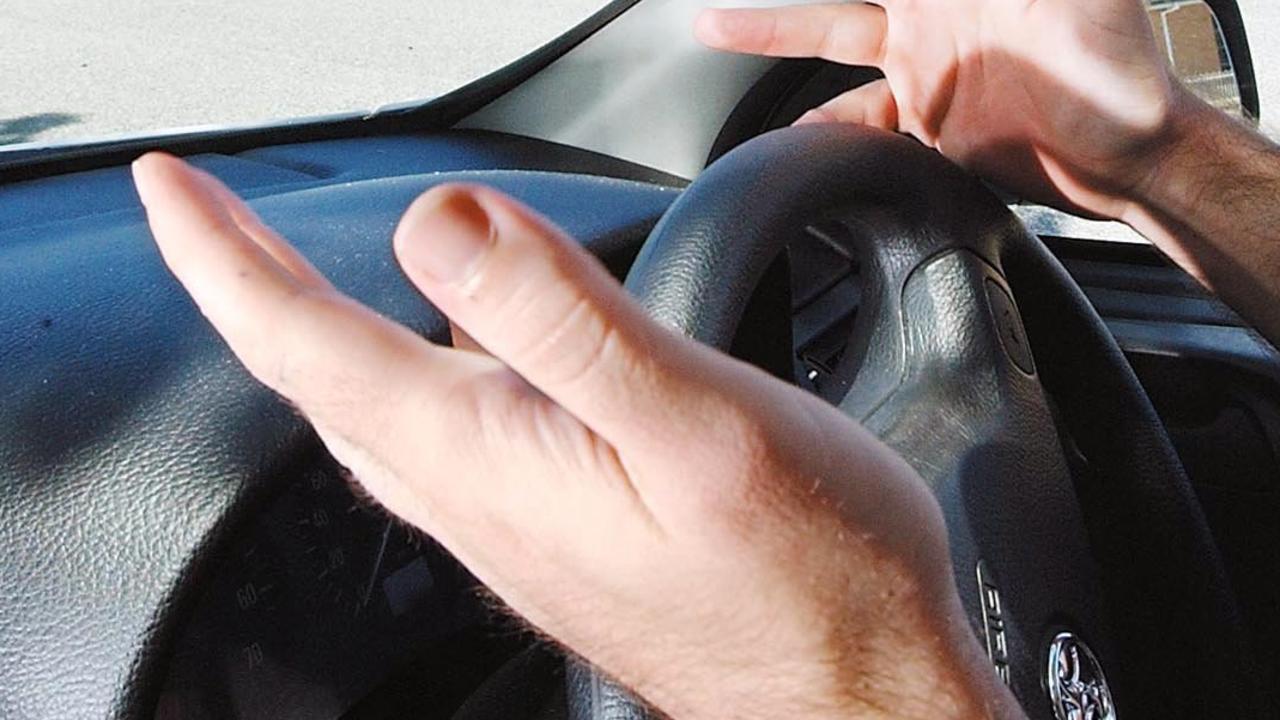Australian bargain-hunters are being warned to take care when splashing their cash online, with a surge in the number of dodgy shops swiping credit card details and personal information.
A sweep by a top online security firm has uncovered several thousand fake storefronts for countless iconic retailers, from shoemaker Doc Martens to uber-chic fashion house Loewe and high-end designer Prada.
With discount shopping season in full swing, there are concerns that unsuspecting browsers could be fooled by the convincing websites and enticed by the seemingly incredible deals on offer.
Cyber security firm Avast conducted the analysis and exclusively provided news.com.au with a list of more than 4000 fake stores, covering budget brands through to premium names.
They include Ralph Lauren, Hugo Boss, COMME des GARCON, Louboutin, Marc Jacobs, Armani, Brooks Brothers, Cartier, Cos, Lacoste, Gant, Fred Perry, Nike and Adidas, to name just a few.
Even fast fashion giants like H&M and Zara have been targeted.
The shopfronts appear genuine thanks to sophisticated designs, functional e-retail technology, extensive product photography and descriptions, and even customers reviews.
“Shopping post-Christmas sales brings with it a slew of online shopping deals, which can be a wonderfully convenient way to check off a wish list,” Avast security expert Stephen Kho said.
“However, it is also a feeding ground for cyber criminals who prey on Australians’ eagerness for a bargain.”
For example, fans of popular Spanish luxury fashion house Loewe might be enticed by some of the fake store’s incredible deals.
One trendy handbag – the Puzzle Bag in tan calfskin – usually retails for $4600 but can be ‘bought’ for just $255 as part of a limited sale.
Those browsing the dodgy store are reassured with a 30-day money back guarantee and even the offer of a five per cent discount for first-time shoppers.
Over on the fake site for fitness brand LSKD, a pair of deep teal full-length leggings are on ‘offer’ for $72 – almost half the regular retail price.
A store claiming to be the Australian outlet of Marc Jacobs is offering a range of trendy sneakers for as little as $110, while those with the travel bug can nab a Lite-Box Alu carry on in silver metal from a fake Samsonite outlet for $170, down from $545.
“Exciting deals can cloud our Judgement, especially during this shopping event,” Mr Koh said.
“It is a timely reminder to remain educated about the warning signs of scams, and to put good cyber safety practices into play.”
Many of the dodgy stores display highly in Google search results for the brands’ names, potentially catching out unsuspecting shoppers.
That’s something the Australian Consumer and Competition Commission is increasingly concerned about.
“A recent, disturbing development is that scammers are paying for their fake websites to appear at the top of your internet search,” ACCC deputy chair Catriona Lowe said.
“This means you can’t necessarily trust the first listing you see.”
And when clicking an advertisement on social media, visiting a site within the platforms’ apps can make it difficult to notice the URL.
In some cases, criminals are selling their non-existent wares on the platforms themselves.
“Consumers should also be aware that scammers are using social media platforms to set up bogus stores and to advertise their fake websites,” Ms Lowe said.
Last year saw a record number of scams and the rapid rise of artificial intelligence has only made the problem worse, with nefarious operators able to quickly and easily able to ramp up their efforts.
“Aided by the new technology, fake online storefronts, dodgy social media ads, marketplace swindlers, and bargain-themed phishing attempts will run rampant this holiday season,” Mr Kho said.
“It’s important Australians are equipped with the tools and knowledge to avoid any personal or financial harm.”
Between January and September last year, the National Anti-Scam Centre received more than 2700 reports from Aussies scammed by fake online stores.
Total reported losses from online shopping scams surpassed $6.2 million by the third quarter of the year.
The National Retail Association is aware of the spike in fake retail websites, many of which can appear quite convincing with official logos, Australian domains, and even listed ABNs.
“These websites offer luxury items at unrealistically low prices, often delivering fake or no products at all,” the organisation said. “Social media platforms also host transient fake stores. To detect these scams, rely on independent reviews before making any purchases.”
Those behind fake online stores tend to be connected to multinational organise crime networks, National Australia Bank group executive of investigations and fraud Chris Sheehan said.
“Fake websites and online social media stores are generally only up and running for a short period of time before scammers move on to the next brand,” Mr Sheehan said.
“Most of the time nothing will arrive, while sometimes the buyer will receive a counterfeit version of the item they’ve purchased.”
Even those typically seen as being tech-savvy can fall prey to the practice, he said.
“Thirty five per cent of all people reporting online shopping scams were aged 25 to 44.”
When shopping online, Aussies should verify the credibility of the websites they visit and especially before entering personal information or payment details, Mr Koh said.
Check the URL and ensure that it’s secured with “https”, he said.
“Opt for trusted payment methods that provide an additional layer of protection for your financial details. Be cautious if there is only one payment method, especially if it requires entering your card details directly on the e-shop page.
“Legitimate platforms usually offer a variety of secure payment options.”
Shoppers should also be extra vigilant during sales periods and resist the pressure of a quick buy without checking who they’re purchasing from.
“Observe warning signs such as spelling errors on websites, unusual email addresses, or suspicious offers. Legitimate e-shops always present themselves with care and professionalism.”
Those shopping online should also install and regularly update security software on both their computer and mobile devices.
“This can protect your sensitive information from online threats,” Mr Koh.
And anyone who encounters a dodgy site or falls victim to scammers should share their experiences and warnings.
Reports can be made to the government’s Scam Watch agency. Victims should also immediately contact their bank or credit card provider.
On top of that, Mr Koh urged Aussies to “engage with other online shoppers” to warn them of suspect sites.





